The dark truth behind the movie AIR
Nike's Air Jordans were all about building a brand. It didn’t matter how many children died in the process. All for a pair of shoes.
One-time or recurring donations can now be made at Ko-Fi
You can listen to me read this essay here:
Air is a film for today. With its big-name cast, it’s the kind of inspiring all-American movie that we love so much, the story of a poor kid’s rise to riches through talent, perseverance and a dose of good luck.
No, wait, that’s not what it’s about at all.
It’s about a sports company building a shoe-line around a celebrity’s image and how they made billions of dollars doing it. That’s the all-American dream now. Kids believing that a pair of $115 shoes (or the latest I-phone, or whatever) is what gives their lives meaning. The product is who they are. The inside can be an empty shell as long as the outside looks the part.
The success of Air Jordans and Michael Jordan’s transformation into a legend, opened the door for other sports companies to hire stars to endorse products as a way of selling an unattainable dream and bilking the public of billions of dollars. Sports stars can make millions on the court, but they can make billions promoting products. Selling themselves to the highest bidder means that the kids who look up to them learn to do the same.
Now, this is nothing against Michael Jordan. He surely is a living legend—the first of his kind—and as such is quite untouchable. I’m sure he never imagined the violence that would break out on the inner-city streets once he signed that contract with Nike. When he was told that kids were killing each other over his shoes, he said:
"I thought people would try to emulate the good things I do, they'd try to achieve, to be better. Nothing bad. I never thought because of my endorsement of a shoe, or any product, that people would harm each other."
— Michael Jordan
This hits home for me. Just a few months ago, two young men in their late twenties, that I’ve known since they were in middle school, were shot and left for dead after posting photos on social media of their “bling”.
One is the rapper, Wakko the Kid, the other is his sound engineer, Caleb. I tried to visit them in the hospital but couldn’t get in because I wasn’t vaxxed.
The Los Angeles Times did a story about Wakko.
Wakko the Kidd is often seen in music videos on YouTube holding thick stacks of cash in his hands, standing next to expensive cars or boasting about money in lyrics like claiming his “paycheck like Dubai.” In one video posted on his TikTok account, someone in the backseat of a car is seen dropping $100 bills from a window onto a crowded sidewalk.
Within days of that crime, another young rapper PnB Rock was shot and killed for his jewelry, after having revealed on Instagram he was eating at Roscoe's House of Chicken 'N Waffles.
According to LAPD crime statistics, robberies have increased about 18% so far in 2022 when compared with the same time period in 2021.
Between Wakko and Caleb, they took over twenty bullets and it’s a miracle they are still alive. Wakko told me the experience changed his mentality, he thanks God he’s still alive, and he’s working on a new album about it. Caleb says God saved him years ago from a life of drug addiction. He was just in the studio helping his friend.
“But the fact is,” he told me. “It’s the drugs, violence and money that sells. If you want to make it in this business, that’s what you have to rap about.”
The rap “industry” has shaped young men’s minds as much as the sports industry. Both worlds started with real heroes on the streets, like Michael Jordan and Tupac Shakir, but they both ended up as money-making machines.
And it all started with Air Jordans.
The death of 15-year-old Michael Eugene Thomas in May 1989 shocked the nation. It became the most infamous example of how far kids would go to capture the dream they were being fed by the marketing industry.
James David Martin, 17, a basketball buddy, strangled Thomas for his two-week-old Air Jordans, leaving his shoeless body in the woods of Anne Arundel County, Md.
From the Vox Vault
Thomas loved Michael Jordan, as well as the shoes Jordan endorses, and he cleaned his own pair each evening. He kept the cardboard shoe box with Jordan's silhouette on it in a place of honor in his room. Inside the box was the sales ticket for the shoes. It showed he paid $115.50, the price of a product touched by deity.
“We told him not to wear the shoes to school,” said Michael's grandmother, Birdie Thomas. “We said somebody might like them, and he said, ‘Granny, before I let anyone take those shoes, they'll have to kill me.’”
Kevin Garnet describes that time:
This all crystalized in 1989 when I was thirteen. Word swept through the hood like a tornado. A kid had been killed for his Air Jordans. The red-and-black Air Jordans.
That was the moment. That’s when the alarm rang. That’s when one world stopped and another started. That turned out to be the number one selling shoe in the world, for any sport, for any athlete. Over a fuckin’ million pairs sold.
Garnett describes what Nike did to Jordan, turning the person into the product:
They were taking him to Paris. They were turning his game highlights into commercials. They were putting him on soundstages and telling him, “Put on these shoes and then dunk. Put on these shoes and hit a three. Put on these shoes and just jump.”
Who was dunking the ball like that before Jordan? Dr. J, that’s who. But Jordan was a better Dr. J. Dr. J had a good jump shot, but it wasn’t no Jordan jump shot. Jordan was the script that all of us had to follow. He was the avatar. Mike was the mantra. And Nike was the corporate monster making it all happen.
The deaths continued over the years, the cause spreading beyond Jordans to other products that youth were told they just had to have. Here are just a few from the Vault:
1983: 14-year-old Dewitt Duckett was shot to death in the hallway of Harlem Park Junior High in Baltimore by someone who apparently wanted Duckett's silky blue Georgetown jacket.
1985: 13-year-old Shawn Jones was shot in Detroit after five youths took his Fila sneakers.
1988: a 14-year-old Houston boy, a star athlete in various sports, allegedly stabbed and killed 22-year-old Eric Allen with a butcher knife after the two argued over a pair of tennis shoes.
In March 1990, Chris Demby, a 10th-grader at Franklin Learning Center in West Philadelphia, was shot and killed for his new Nikes.
It didn’t stop there. This is from 2012:
Joshua Woods was getting into his car after purchasing the $185 shoes when three men attempted to rob him and then shot at the car 14 times. One of the bullets hit the victim in the head, causing him to crash his car where he died at the scene.
In a tweet at that time, Joshua Woods’ mom said:
"Nike/Michael Jordan did not pull trigger but w/ great power comes great responsibility."
These companies created a fantasy world for kids to live in—an unattainable world. For many of them, their real world was inhabited by gangs, violence, absentee fathers, drugs sold on every street corner. Boys growing up without fathers were fed ads telling them if they wore the products being sold, they would be tough, successful, untouchable, like the stars they emulated.
Nike alone spent $60 million in 1990 on TV and print ads that built such slogans as “Bo knows,” and “Just do it,” and “Do you know? Do you know? Do you know?” into mantras of consumerism. - Vault
Street gangs picked up on the hype and wore merchandise from their favorite teams to identify themselves. In the 1990s when I was teaching youth creative writing in Central Juvenile Hall, Los Angeles, I heard stories about this; how you can get killed for wearing the wrong baseball cap in the wrong neighborhood.
A Washington Post 1992 article titled GANGS SUIT UP IN SPORTSWEAR, LEAVING GAMES BEHIND tells how “hats, jackets, shirts and shoes of professional sports teams have been commandeered by gangs: The clothes identify not just the larger gang but often a set or subset of a gang, sometimes in extraordinary detail. And, if worn in the wrong neighborhood, a baseball hat can get someone killed.
Our youth have been raised on constant “mantras of consumerism” and celebrities now think nothing of selling themselves to these companies for millions of dollars. Once they do, they become slaves of the machine, greasing its wheels and keeping it grinding away.
I wrote about this in my inspirational essay, John Wooden vs LeBron James.
I had the honor of sitting and talking with Coach Wooden, the legendary coach of the UCLA Bruins basketball team, shortly before his death at age 99. In case you need reminding, or you’ve never heard of him, Wooden, nicknamed the Wizard of Westwood, won ten NCAA national championships in a 12-year period as head coach for the UCLA Bruins, including a record seven in a row. No other team has won more than four in a row. Wooden’s team included greats such as Kareem Abdul-Jabbar, Curtis Rowe, Sidney Wickes, and Bill Walton.
Wooden lived in a humble condo, not a mansion, as you might expect. On the day I met with him, he told me what he thought about current sports.
“It’s all about money and advertising. I was offered so much, if I would just endorse a product, but I never would. I turned down multimillion dollar contracts, homes, cars. Once, they offered me a huge house by the ocean in an exclusive area, if I would endorse a product.”
John Wooden understood the value of remaining free. Of not selling himself to a company that would then tell him what to do. All for what? Money? No thanks.
"I have always tried to make it clear that basketball is not the ultimate. It is of small importance in comparison to the total life we live. There is only one kind of life that truly wins, and that is the one that places faith in the hands of the Savior.”
You might not agree with his faith. But there is something about faith in a higher power that keeps us centered. Material possessions and now possessions in virtual reality, are turning us all into manikins to be manipulated this way and that, addicted to the products we have been brainwashed into believing we must, at all costs, possess or else we are “missing out”.
There are brave celebrities that we can look up to, but they are quickly brought down, and their voices silenced. There are others who try to be brave for a minute and then quickly capitulate to the powers that dictate their salaries and their status in society.
In October 2019, at the height of the protests in Hong Kong, Rockets General Manager Daryl Morey wrote a tweet that he later deleted, voicing support for the protestors.
“Fight for Freedom. Stand with Hong Kong.”
In response to Morey’s statement, the Chinese Basketball Association and several TV providers suspended ties with the Rockets.
As a result, Houston Rockets star James Harden on behalf of Morey and the team, with all the team members standing around him in support, said:
“We apologize. You know, we love China. We love playing there. For both of us individually, we go there once or twice a year. They show us the most important love. So we appreciate them as a fan base. We love everything there about them, and we appreciate the support that they give us individually and as an organization.”
Le Bron James, now the king of basketball (a testament to how far our values in society have fallen), judged Morey as “not educated on the situation.”
“So many people,” he warned, “could have been harmed, not only financially but physically, emotionally, spiritually.”
Financially, yes. But physically, emotionally, spiritually? Is there any spirituality left in the sports or entertainment industries (which are really both the same)?
Nike’s slogans like “You can’t stop us,” and “Just do it” take on a whole new meaning. Just do what we say. You will only hurt yourself if you dare defy us.
Yes, there are the courageous ones who refuse to bow down. The most famous is perhaps tennis player Novak Djokovic. There are others that deserve mention for standing up, not only against China but against our own increasingly totalitarian regime.
Czech tennis player Renata Voráčová was retained in the same Australian hotel as Djokovic for the crime of being unvaccinated against Covid. NFL star Aaron Rogers also took a stand. And then there’s NBA stars Kyrie Irving. And Jonathan Isaac, who said:
“…it is my belief that the vaccine status of every person should be their own choice. Completely up to them without bullying, without being pressured, without being forced into doing so. I’m not ashamed to say that I’m uncomfortable with taking the vaccine at this time.”
In 2017, Celtics center, Enes Kanter, was detained in a Romanian airport when the Turkish government canceled his passport due to his outspoken criticism of Recep Tayyip Erdoğan, the president of Turkey.
In 2021, the Celtics center called for freeing Tibet and blasted Chinese president Xi Jinping, and the hypocrisy of LeBron James and Nets owner Joe Tsai. As a result, China banned Celtics games from its airwaves.
Now, that’s what I call courage! Because every entertainment and sports celebrity knows that the last thing they want to do is criticize China.
Besides owning the Nets, Tsai co-founded the Chinese e-commerce company Alibaba. Kanter dared to call the Nets owner “spineless” for calling the Hong Kong protesters “separatists”.
In November 2021, Kanter became a US citizen and added Freedom to his name—standing up for what he believed. Walking the talk.
What happened to Enes Kanter Freedom for daring to criticize China? He was traded by the Boston Celtics to the Houston Rockets and then promptly cut by his new team, leaving the NBA veteran unemployed for the first time in his ten-year professional basketball career.
Of course, the press denied that his ousting had anything to do with him daring to actually speak his mind.
These are the heroes our children should aspire to be like. Except the machine quickly silences them, destroys their reputations, and often makes them into laugh stocks. What big star wants that to happen to them.
And what of Michael Jordan? Did he take a stand for freedom and have the back of those who had the courage to speak out? Unfortunately, he didn’t.
"I am totally in unison with the league," Jordan said. "I'm a firm believer in science, and I'm gonna stick with that. Hopefully everybody abides by whatever the league sets the rules. I think that, once everybody buys in, we're gonna be fine."
Jordan has said that he never thought of himself as a political activist. He was a basketball player and once his image was set, he was careful to not rock that boat. In all fairness to Jordan, he has every right to be that way. It’s his choice. What’s more concerning is that these are the ones we choose to put on a pedestal. The ones who stay safe. Who sign the deals with the devil and take the blood money.
Air doesn’t tell the story that we need to hear. It plays the same old Hollywood reel, brainwashing people into thinking that fame and fortune are the meaning of success. Now, everyone can have success inside of their phones, on a Tik Tok app—owned by China.
Michael Jordan bowed to the money-making machine that had molded and built him into the most iconic sport figure of all time. He played it safe, when that was the last thing that would have ever brought him success on the basketball court.
Somehow, if John Wooden were alive today, I don’t think he would approve. He went to his death with a clear conscience, knowing he hadn’t sold out for a buck. No kid on the street had ever died over a pair of shoes with his name on them.
Somehow, I think John Wooden is happy where he is now, away from all this craziness.

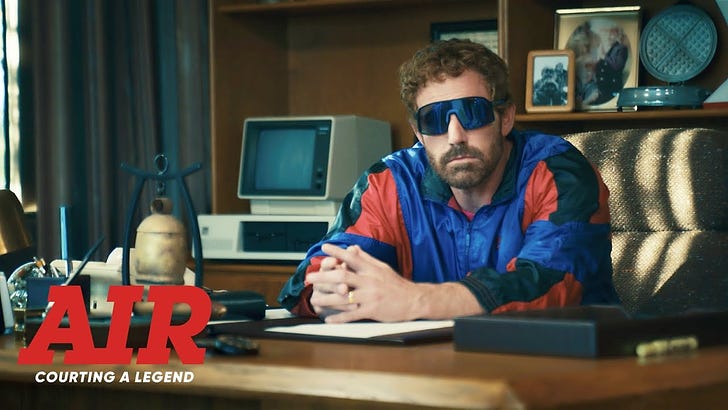


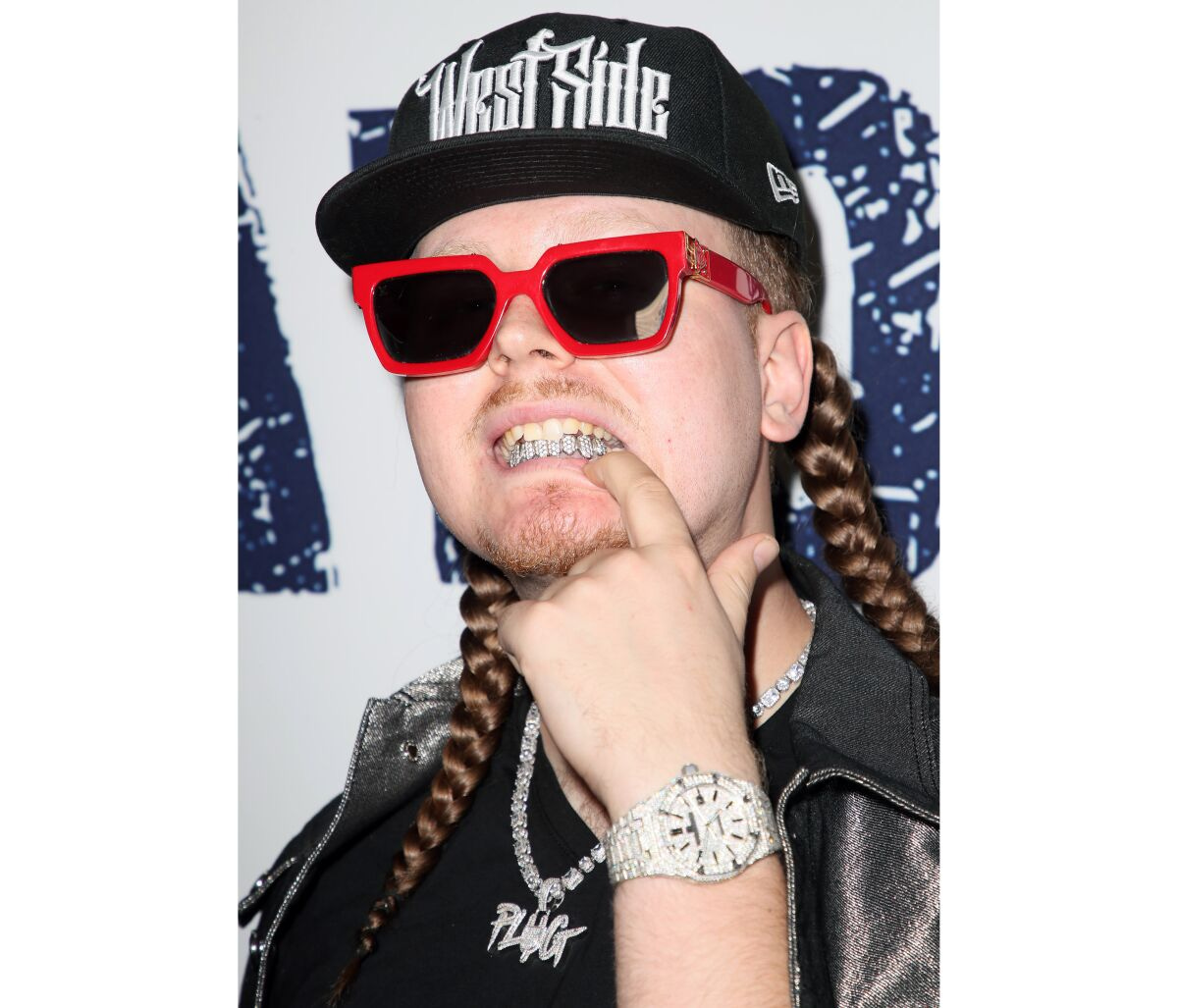
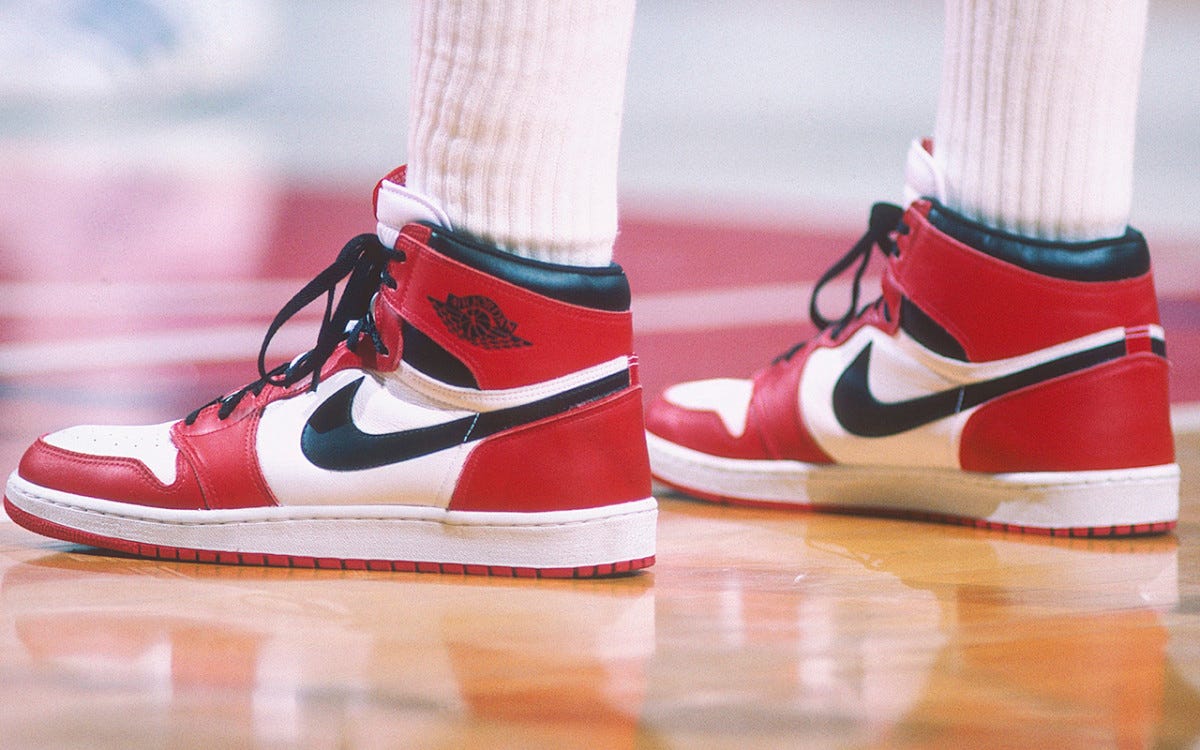
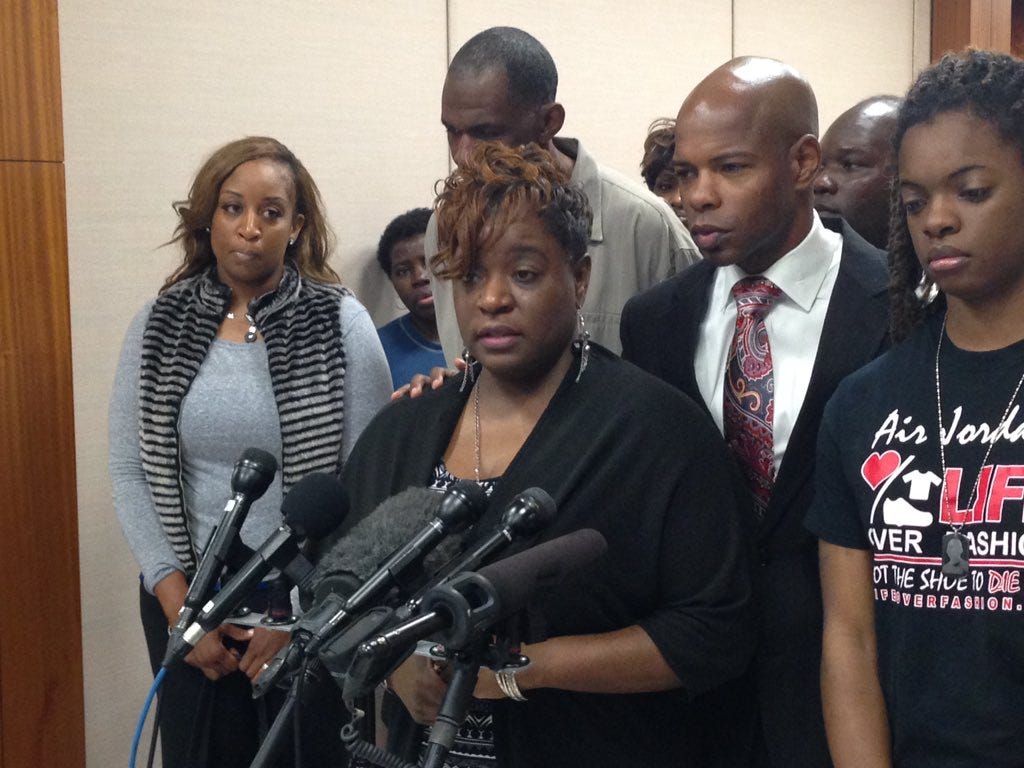
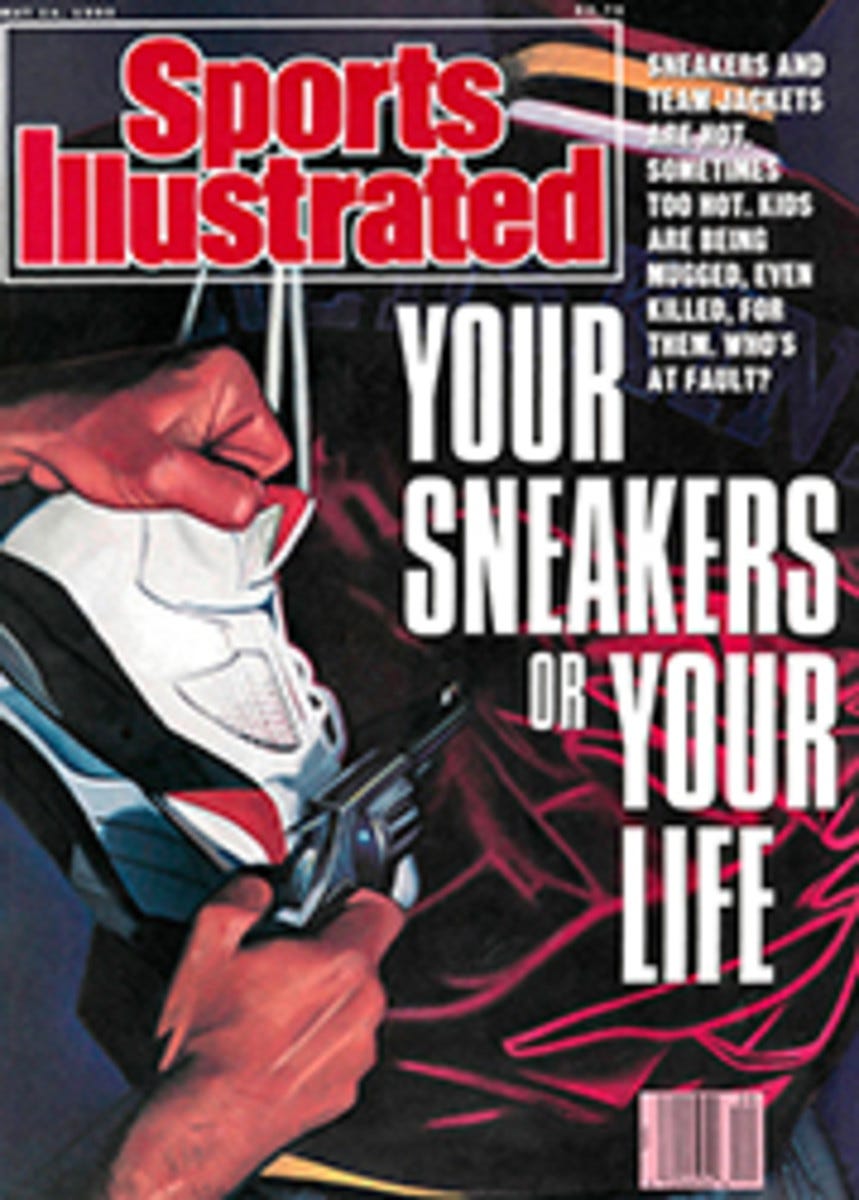
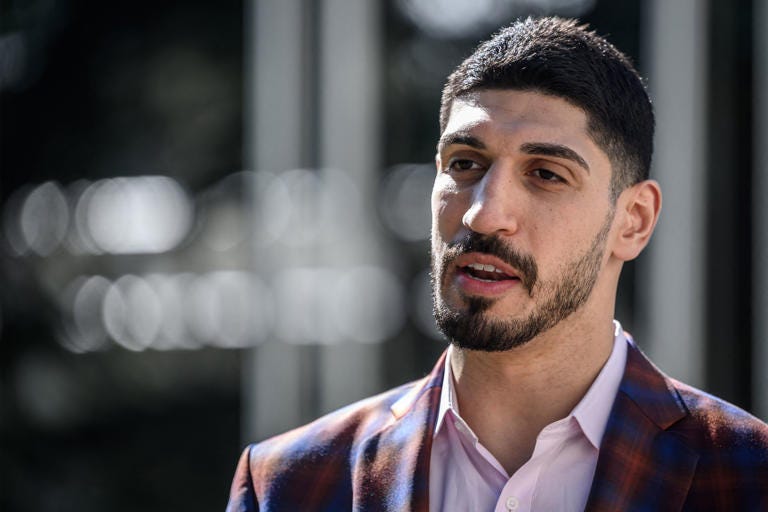
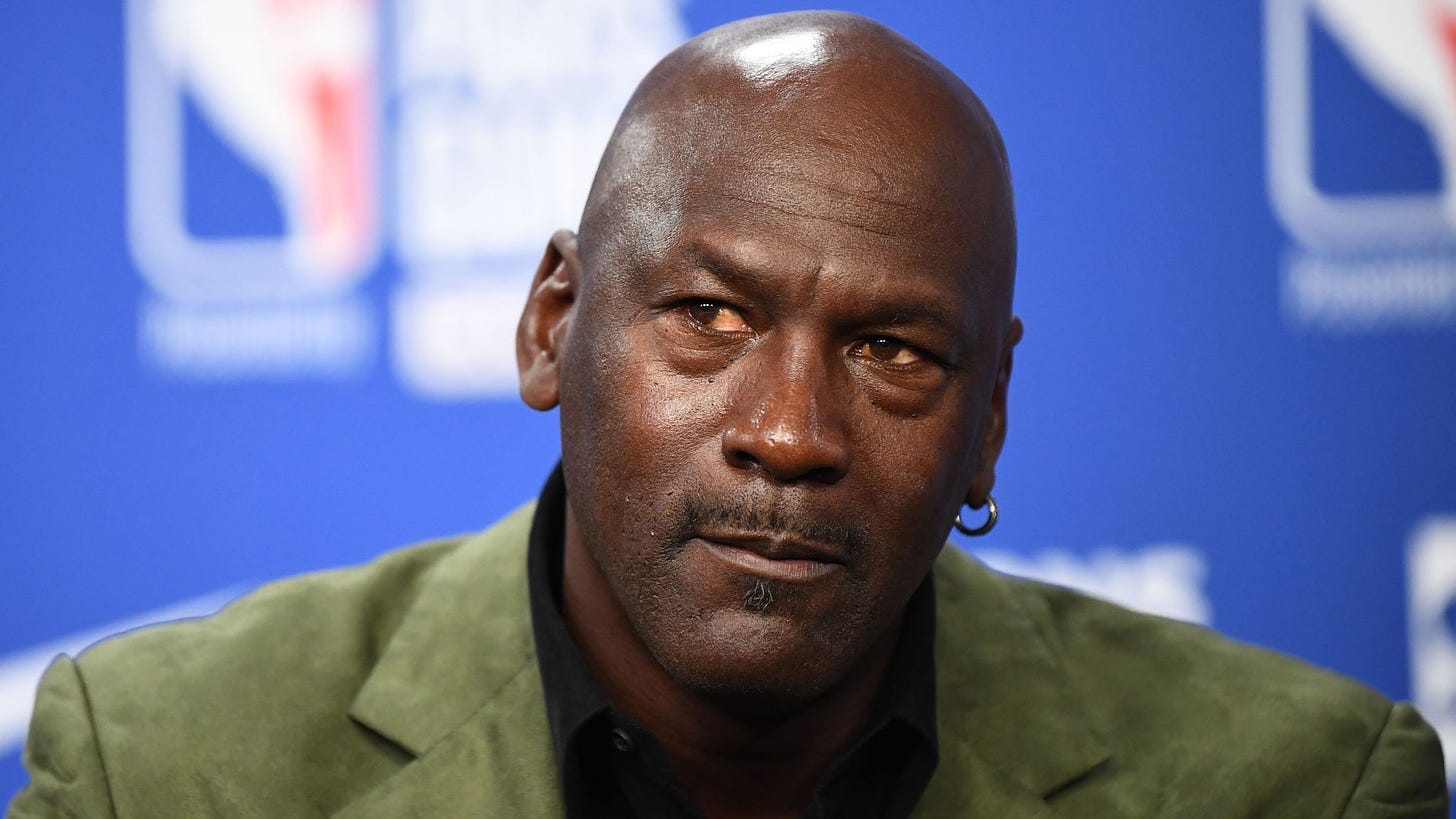
this is pathetic, it’s a zoo out there.
by the way, if you hadn’t included a picture of the shoes, wouldn’t know what they were. if someone left a pair on my doorstep, would toss the stinky loafers in the recycling bin.
Great insights. Very good writing.